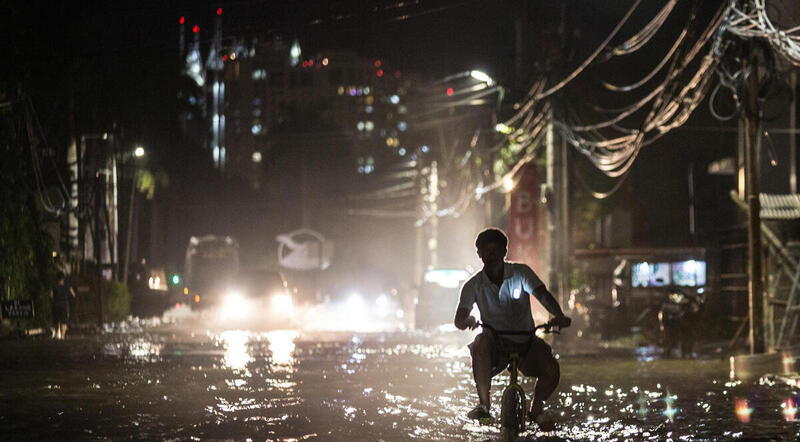Japan is trying to push fossil fuel-based technologies on the region like gas, fossil hydrogen, carbon capture and so-called clean coal
When Southeast Asian leaders gather in Jakarta this week, they’ll face air so polluted from cars and coal plants that the city was recently labelled the world’s most polluted city.
The leaders will convene for the Association of Southeast Asian Nations (ASEAN) Summit following a once-in-200-year heatwave that shut down schools and led to widespread hospitalizations across the region.
But, at a time when ASEAN leaders must take strong action to transition to renewable energy, Japan is undermining Southeast Asia’s transition by promoting technologies that would expand and prolong the use of fossil fuels.
Japan is using initiatives such as the “Asia Zero Emission Community (AZEC)” and the “Asia Energy Transition Initiative” to supposedly support ASEAN partners’ decarbonisation efforts. However, these initiatives are vehicles to promote Japan’s so-called “Green Transformation” strategy, which relies heavily on fossil fuels and fossil fuel-based technologies.
Japan’s plans emphasize the development of liquefied natural gas (LNG), fossil hydrogen, carbon capture and storage (CCS), and co-firing ammonia and biomass at coal-fired power plants. These technologies will not help Asia reduce emissions.
According to thinktank TransitionZero, co-firing ammonia at coal plants in Indonesia, Malaysia, the Philippines, and Thailand will not cut emissions in line with the International Energy Agency’s 2050 net-zero target.
Similarly, switching from coal to gas power plants globally will not reduce emissions enough to meet climate targets, according to Global Energy Monitor. It will also delay the necessary transition to clean and renewable energy, such as solar and wind.
Japan’s efforts to undermine Southeast Asia’s energy transition are extensive. Last year, Japan drafted a decarbonisation plan for Indonesia that prioritised the development of LNG, hydrogen, ammonia co-firing, and CCS. Japan is slated to develop a national decarbonisation plan for Cambodia, among others. Earlier this year, Japan convened an AZEC meeting to build support for its technologies amongst energy ministers across Asia.
More recently, Japan’s hand was visible in the August joint statement of ASEAN Ministers on Energy Plus Three, which encouraged the deployment and utilization of “hydrogen, fuel ammonia, small modular reactor, bioenergy, clean coal technology (CCT), and carbon capture utilisation and/or storage (CCU/S)/carbon recycling” and emphasized the need for investment in LNG for “energy security and energy transition in the region.”
What climate funders must learn from Kenya’s wind power troubles
At the upcoming ASEAN Summit, member states must reject Japan’s self-serving push for fossil fuel-based technologies and strengthen their cooperation on increasing solar and wind capacity in the region. With the costs of solar and wind falling worldwide, this is the most cost-effective way to cut emissions and meet climate goals.
ASEAN countries must also not waste precious public funds on technologies such
Read More

